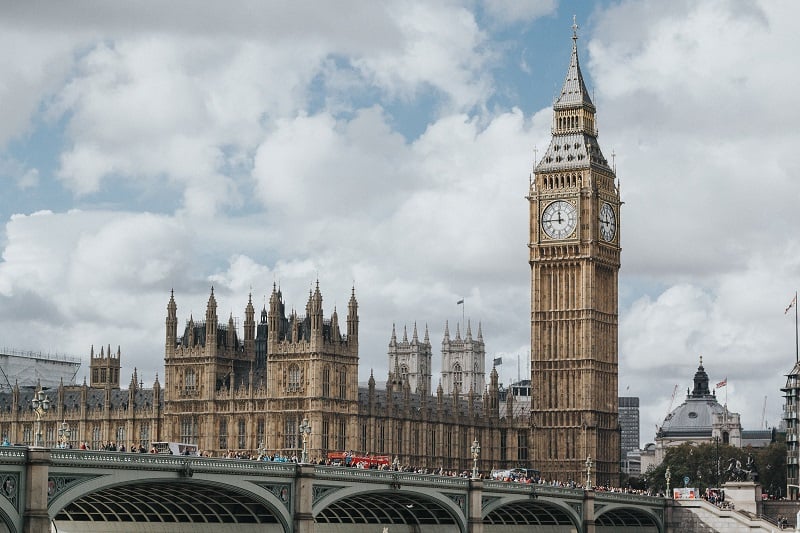
Callum Provan
Content Strategist
The UK’s Climate Change Committee (CCC) 2023 Progress Report to Parliament signals that the government is not on track to meet its 2030 emissions reduction target and risks falling behind in a “new global race to the top” due to political indecisiveness.
The CCC states that to achieve the target of 68% emissions reductions by 2030 compared to 1990 levels, set in the run up to COP26, the recent rate of annual emissions reductions outside of the electricity sector must quadruple over the next seven years.
Reflecting on 2022 as the warmest year on record for the UK and climate-related disasters worldwide, Lord Debden, Chairman of the Committee and a former Conservative Secretary of State for the Environment, warned that this happened with a global temperature increase of just 1.1°C.
“We are on course for double that.”
He also stressed that “the failure to act decisively over the past year in response to the energy crisis means that the UK has lost the clear global leadership it once held.”
Released on 28 June, the report points to recent policy shifts such as the US Inflation Reduction Act and the EU Green Deal Industrial Plan, warning that the UK risks missing new opportunities presented by green investment.
Overall, the sentiment from the CCC is understandably negative and the urgency clear. Investors might find the sectoral data most useful, while the wider political landscape helps to explain the “step backwards.”
A missed opportunity
According to the CCC report, renewable electricity supply increased in 2022 but not at the rate required to meet government targets, representing a missed opportunity in the current energy crisis. Wind power is shown as slightly off track, while solar is well off track of the target.
Support for new oil and gas licenses in the North Sea and a coalmine in Cumbria has sent contradictory signals to the global community and private finance alike. The report also points to ongoing uncertainty around home heating, calling for a decision on the role of hydrogen.
The cost of electricity was brought closer to gas as part of energy support and this should be made permanent, the report stresses. It also highlights the poor uptake in heating pump installations and the need to update the planning system for new buildings and infrastructure.
A “joined-up approach” is needed for land and agriculture, with current tree-planting and peatland restoration falling short of the required levels. Investors will watch this space closely, with initiatives such as Nature Action 100 reflecting the increasing role the topic plays in climate conversations.
The UK’s biggest emitter, the surface transport sector, has seen some improvements but remains off track. Sales of electric cars continue to grow ahead of the CCC pathway but electric van sales lag and are significantly off track of the target.
Industry emissions, the third highest-emitting sector, suffers from poor data but is off-track for most available indicators. Steel manufacturing was called out in particular, with no clear plan at present to support electrification.
Investors need clarity
The contradictory signals of ambitious net zero commitments, new fossil fuel licenses and a fast-shifting global landscape are reoccurring themes throughout.
Net zero-committed investors, many with a presence and assets across the world, need clarity from governments when deciding where to allocate capital. The current uncertainty of the UK net zero strategy risks jeopardising confidence at a time when private capital is needed most.
Like many others, the government has been faced with geopolitical crises, but Lord Debden warns that this is the time to “act decisively and with ambition. It cannot wait until the next election.” Direct reference to the upcoming election, which must take place by January 2025, is telling.
Every year counts on the road to 2050, and with such a strong precedent for climate ambition the UK could quickly return to its leadership position.
“Our concern,” said Chris Stark, CCC CEO, “is inertia in making the change happen.”
Failure to do so, or worse still if net zero becomes a dividing line in UK politics rather than a broadly unifying topic, would pose material and financial risks to investor assets and to their beneficiaries.
If you’d like to take part in our working groups and be the first to see insights and analysis, why not speak to our investor relations manager today to find out more about becoming a part of IIGCC.